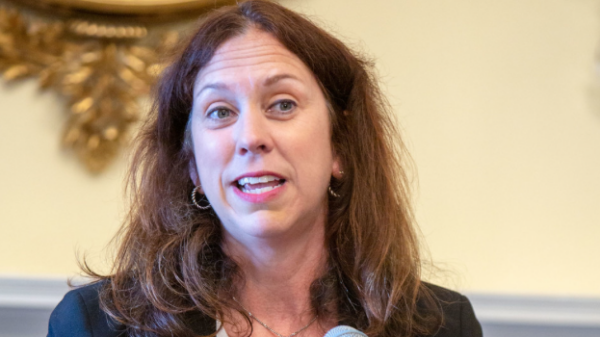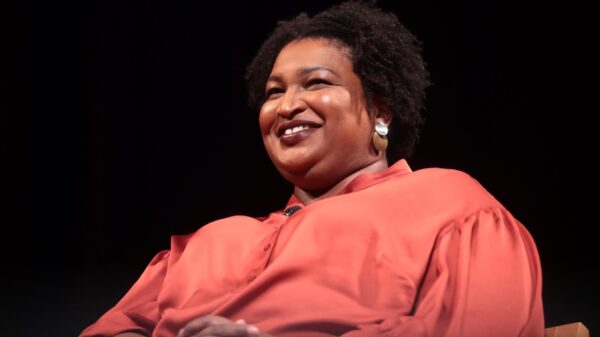
Since 1949, the Television Academy, or the “Emmys,” has been the main celebration of all things television. Actors, directors and creatives come together each year to pick the best small-screen performances and behind-the-scenes work. From the nominations list, it seemed as if the Television Academy was finally willing to honor a wide variety of exciting new television shows ranging from the martial arts comedy “Kobra Kai” to the emotional crime drama “Mare of Easttown.” However, on the big night when it came time to announce the winners, it seemed as if the same shows were being announced repeatedly.
In the comedy category, “Ted Lasso” earned the most wins, securing the awards for lead actor, supporting actor, supporting actress, and series. In the drama category, “The Crown” performed a clean sweep of awards, which marked the first time a drama series has ever taken home all of the honors in its category. “The Queen’s Gambit,” which was the big chess show phenomenon of the past year, took home best limited series, directing, and nine other behind-the-scenes awards.
Though those particular shows may have been considered the best in their category, it’s disappointing to think that those shows warranted almost every award, leaving room for a lack of diversity among the winners (only two Black people were awarded Emmys that night) and a rather dull ceremony. This begs the question: did the Television Academy only see three shows out of the 20+ shows nominated?
Surprisingly, for a ceremony that seeks to honor diversity, no person of color took home an acting award in any category on the big night. The year before (the 72nd Primetime Emmy Awards), three out of the four actors in the limited series category were African-American.
“When you have 44% of the nominees that are people of color and you have 0% that win, there’s something structural going on.” says Darnell Hunt, a sociology and African-American studies professor at UCLA.
How did the Emmys go from awarding various people of color to only two people? The answer is simple really: the Emmys refused to share the wealth among the various television shows nominated.
The problem also lies in “lazy voting”, says Deadline TV critic Pete Hammond. “The same voters pick the same shows, until they burn out.”
For example, in the drama category, where “The Crown” (a series highlighting the British Royal family) took home every award, voters probably only saw “The Crown” or loved it to the point where they checked off every category that included “The Crown” in its name. As a result, other deserving shows such as the LGBTQ drama “Pose,” Hulu’s “The Handmaid’s Tale,” and the recently cancelled “Lovecraft Country” couldn’t be recognized in the process.
The late veteran actor Micheal K. Williams, who many believed was overdue for an Emmy for his role as Omar in “The Wire,” was a frontrunner to receive the best Supporting Actor award in a drama. If he had won posthumously, he would have been the first Black winner in that category. However, because of “The Crown’s” sweep, Tobias Menzies ended up taking the award home. It also couldn’t help that Williams’s show “Lovecraft Country” was in the sci-fi/fantasy genre. Award sweeps like these ask the question if the Academy actually watched the performances that were nominated or have a bias against certain types of shows.
The bias is clearly evident against the sci-fi/fantasy genre. Sci-fi shows have been highly overlooked when it comes to industry awards. This year, with so many nominations from sci-fi series, it seemed as if the Emmys might finally start to recognize them. However, that wasn’t the case with “The Boys,” the Netflix superhero show that went home empty-handed on Emmy night as well as the Star-Wars prequel series “The Mandalorian.” What’s more surprising is the lack of love for the television phenomenon “WandaVision”. “WandaVision”, which is Marvel Studios’ first television show, showcases decades of sitcoms through two beloved comic book characters, Wanda (the Scarlet Witch) and Vision. It scored a striking 23 nominations (the most for a limited series this year), but was only able to nab 3 of them for behind-the-scenes work. Actors Paul Bettany and Katheryn Hahn were heavily predicted to win their respective categories, but ended up walking home empty-handed. If at least one of them had won, they would have been the first actor to get an Emmy for playing a Marvel comic role.
This proves that there is still a reluctance for the Emmys to award fantasy shows and take them seriously, regardless of their caliber. The nominations were welcoming, but shallow if the Emmys can not follow through with them.
While the Academy ignored making history in some places, they made up in others. Michaela Coel, writer, actress, and creator of the HBO miniseries “I May Destroy You” went home with her first Emmy in Limited Series writing. She is the first Black woman to ever win that category. Unfortunately, in 2021, there are still “firsts” in place of “hundredths” and “thousandths.”
“It’s not about who gets a trophy,” says Rashad Robinson, President and Founder of the nonprofit organization “Colors of Change” in a tweet. “This is about celebrating diverse stories in Hollywood and creating pathways for marginalized communities.”
The Television Academy has much work to do if they want to be taken seriously as an institution. The lack of minorities winning any awards is unacceptable, considering that actors and actresses of color gave some of the best television performances of the year. To fix this, it’s crucial that a new voting system is reinstated- one that shares the wealth to the broad set of nominees and is open-minded to all kinds of television and performances. Though art is subjective and it mostly comes down to preference, simple changes like these might actually get people to start watching these award shows and give them back the merit that they continue to lose.









